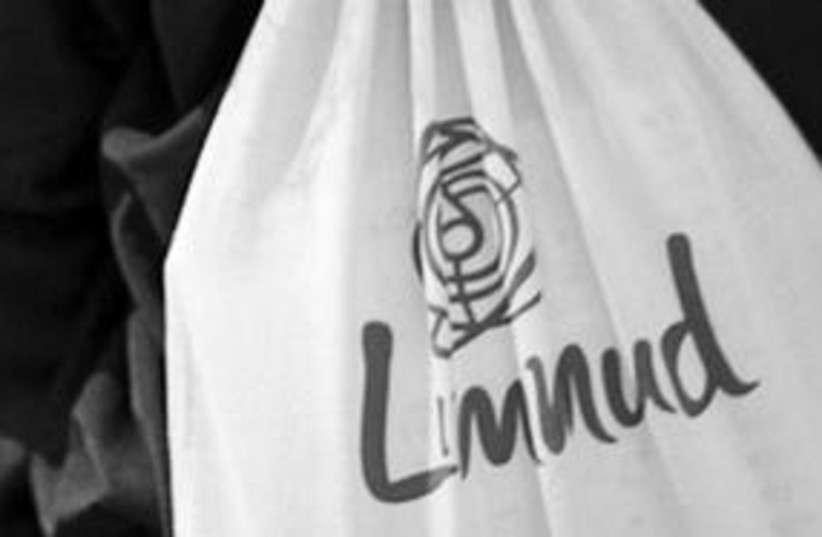Handbook, check. Coffee, check. Sandwiches, check. Off to the first session of Limmud Festival 2022 – Fighting antisemitism today: lessons from Cable Street.
Baron Mann of Holbeck Moor, the independent adviser to the UK Government on antisemitism, was speaking alongside actress Tracy-Ann Oberman about combating antisemitism in the arts. It also provided Oberman with an opportunity to promote her new reworking of The Merchant of Venice, set against the backdrop of the 1936 Battle of Cable Street when Jews, communists and trade unionists united to fight off Sir Oswald Mosley’s British Union of Fascists.
Mann also spoke about the lesser-known Battle of Holbeck Moor, from which he took his peerage’s territorial design, when a similarly heavy defeat was inflicted on Moseley in Leeds, in the week previously. Very little was written about the Battle of Holbeck Moor, which is why Mann believes when the Jewish community has something great like Limmud, it should be shouting about it from the rooftops.
Limmud, which started 43 years ago as a conference for British Jewish educators, expanded over the subsequent years to become a significant force in global Judaism. At its recent peak, more than 2,700 people have attended its five-day-long gathering in Birmingham, England. International festivals and Day Limmud around the world were attracting over 40,000 participants a year.
Limmud works on the principle that every attendee can play an active role not just by attending sessions but through volunteering and even speaking at the conference. This year, at my 11th conference, I took the opportunity to present a session on The Jerusalem Post Podcast – Travel Edition.

You may think it’s strange for me to be nervous when talking for an hour in front of an audience but at Limmud, there is neither editing nor second takes. And as a presenter, there is that special Limmud fear that somebody will be more knowledgeable than you about your own subject and be happy to debate you. I am delighted to report that nobody was more knowledgeable than my team at the annual Limmud Pub Quiz.
What is Limmud?
Limmud prides itself on diversity, with speakers from across the religious spectrum. At this year’s festival, Rabbi Sir Ephraim Mirvis, the chief rabbi of the Orthodox Commonwealth presented, alongside Rabbi Joseph Dweck, senior rabbi of the Spanish and Portuguese community, Rabbi Jeff Fox, dean of faculty of Yeshivat Maharat and scores of leading Torah educators, rabbas (ordained female scholars), teachers and rabbinical students.
2022 WAS a transitional year for Limmud. The pandemic forced the organization to almost return to square one. After two years without an in-person festival because of the pandemic and the current British cost-of-living crisis, Limmud decided to ease itself back to reality. Instead of filling four hotels to accommodate the thousands of participants, Limmud set itself a target of around half its normal number and based it all in a single hotel. Adding to the challenge was a new caterer, who did an amazing job of providing nutritious kosher food while dealing with a vast swathe of special diets.
These were baby steps to bring people back and show that the world has moved on from COVID-19 – well almost. The day after I returned home, I noticed that familiar tickly cough and tested positive.
With a successful fundraising campaign bringing in £200,000 (NIS 835,600), Limmud could subsidize places for those who could not afford the full conference price. It sold out all its hotel places and attracted around 1,400 participants. In keeping with Limmud tradition, those who received a subsidized place, volunteered for up to four hours a day, running children’s clubs and helpdesks, assisting in the dining room or even setting up the presentations. And kudos must go to the small team of 10 Limmudniks, led by kilt-wearing, three-time festival chair Jonathan Robinson, who spent long hours in the preceding months preparing a high-quality Festival on a much-reduced budget.
Back to the program, the raison d’etre of Limmud. It is not just about sessions of text and liturgy. My first full day consisted of learning about Israel’s energy future from New York University professor Efraim Chalamish, debating the ethics of casting Jewish actors in Jewish film roles with film lecturer Dr. Julia Wagner and discovering all about the origins of the Bukharan Jewish community from Seattle based educator Ruben Shimonov. This was perfectly timed, given our recent JPost podcasts from Bukhara and Samarkand.
And no Limmud would be complete without its ever-present co-founder, Clive Lawton, bedecked in his trademark sandals, giving a session or two. Lawton’s subjects included “Britain, the USA and Israel: Political shenanigans – which is saner?” An hour is definitely not long enough to settle that argument.
Limmud has very clear guiding principles about arguments and not delegitimizing another person’s political or religious beliefs. Vigorous debate is welcome but should be educational, not polemic. On Shabbat, there were six distinct prayer services so everybody felt they had a spiritual home. Some first-timers saw women in kippot for the first time and not everybody was comfortable, to begin with. But as the festival continues, you realize it isn’t going to change your worldview, just potentially make you more understanding of other people’s religious stances
As a travel podcaster, I have been privileged to visit so many wonderful places in the last two years with my travel buddy, David, looking for elements of Jewish travel in far-flung parts of the world. But there is something special about Limmud that keeps bringing me back year after year. It’s not the weather or the cuisine, it’s the Jewish journey with a difference – as the strapline used to say, going one step further on my Jewish journey.
Mark is the co-presenter of The Jerusalem Post Podcast Travel Edition. Our podcast is available on Google Podcasts, Apple Podcasts and Spotify.
